Laila Pence the epitome of the American Dream – rushed out of a war-torn Egypt at nine, only to become one of the United States’ top wealth advisors. Between her Baron’s Hall of Fame position and rubbing shoulders with American Presidents, Pence has undoubtably become one of the world’s most successful Egyptians. She has set the stage for many abroad as a symbol of continuous preservation, intelligence, and success.
Today, her daughter is on a similar path – one rife with philanthropy and determination. Egyptian Streets sat down with Sarah Pence, a bright-eyed third culture kid in the throes of navigating her dual cultures.
Here is a chat with Sarah Pence.
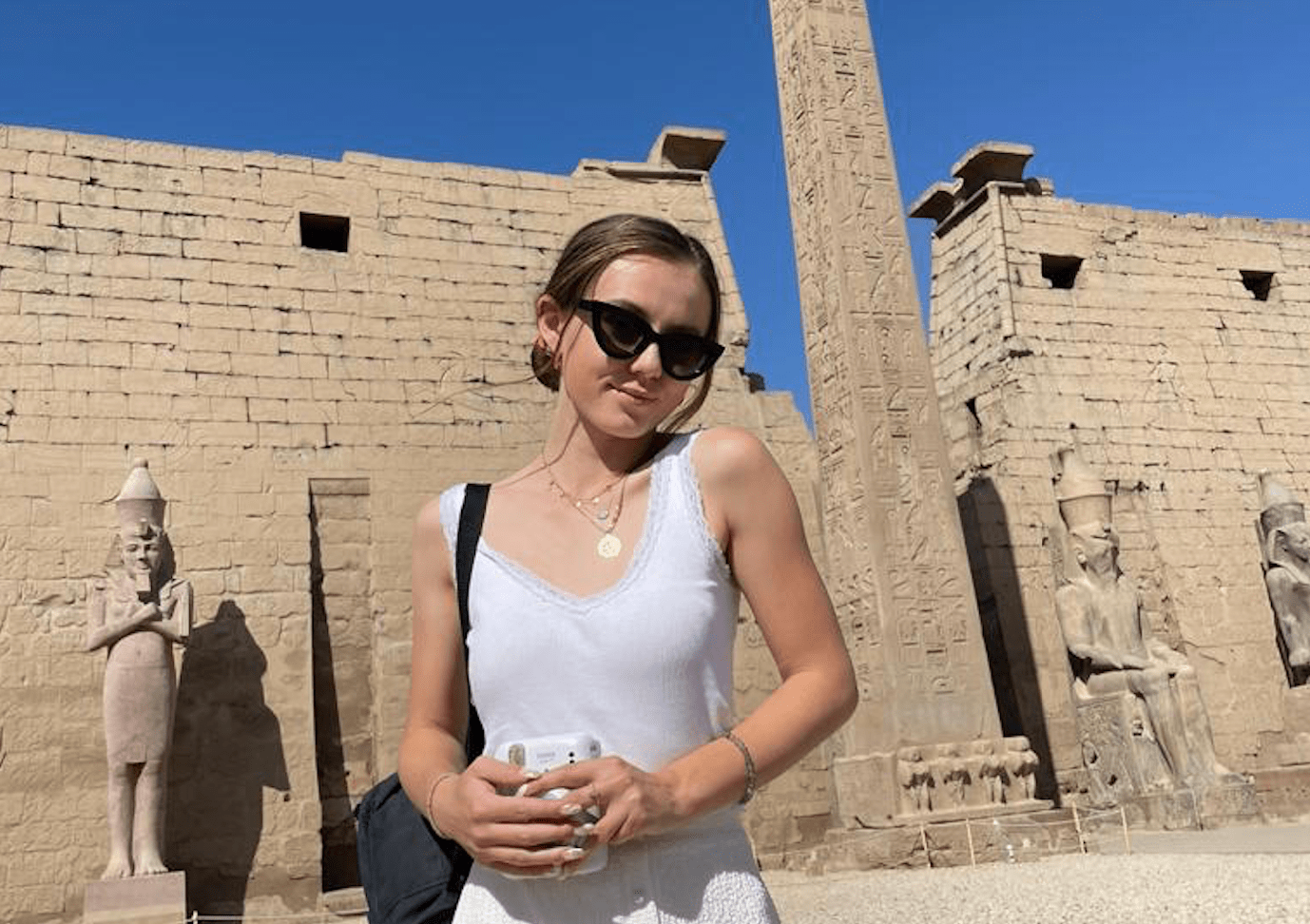
Have you found it easy or difficult as a ‘third culture kid,’ as someone who’s trying to bridge that gap and perhaps fallen into the crevices trying?
When I was younger, it was far more difficult for me just because I felt like I didn’t fit in anywhere.
I didn’t fully fit in with my family in Egypt and I didn’t fully fit in with my family in the United States. Something that was really hard for me growing up was the fact that on the inside I was so Egyptian – like Arabic was my first language and I grew up watching all the musalsalat (soap operas) and Ahmed Helmy’s movies and all that stuff growing up.
When I was younger, I didn’t feel comfortable sharing that part of me just because I did get bullied quite a bit in grade school as the only Arab in my school. Which you would think is a bit strange because nobody. I guess nobody looking at me would think that I’m Arab or Egyptian.
But because my identity was so strong, I was very proud to tell people like who I was. As I got older, the things I didn’t enjoy about being a third culture kid, [instead] became an asset to me. The fact I could navigate between
I think that as I got older, I found that the things that I didn’t so much enjoy being a third culture kid when I was younger, became an asset to me. Primarily that I could navigate between Egyptian communities and American communities, I guess we would call it code switching.
I would only speak Arabic with my Egyptian friends or Arabic community here and I would speak English, but my American friends, however, I would bring different aspects of my identity into both communities. As I got older, even the fact that I didn’t look outwardly super Egyptian, which was something I really wished I would when I was younger, [benefited] me.
It became an asset to me in the sense of: I could hear Arabic in a public setting and people wouldn’t necessarily know I was Arabic immediately. I would use it to help if I saw someone struggling [with language]. Another time was when I heard some racist things being said [by Americans], they didn’t know I was Arab when they were saying them – then i was able to be like, no I’m Arab: if you truly think that, how could you think that of me, like, you know, like you were friends with me and now you’re saying this.
I kind of used it as a way to break down stereotypes that other people had againstEgyptian culture and Arab culture.
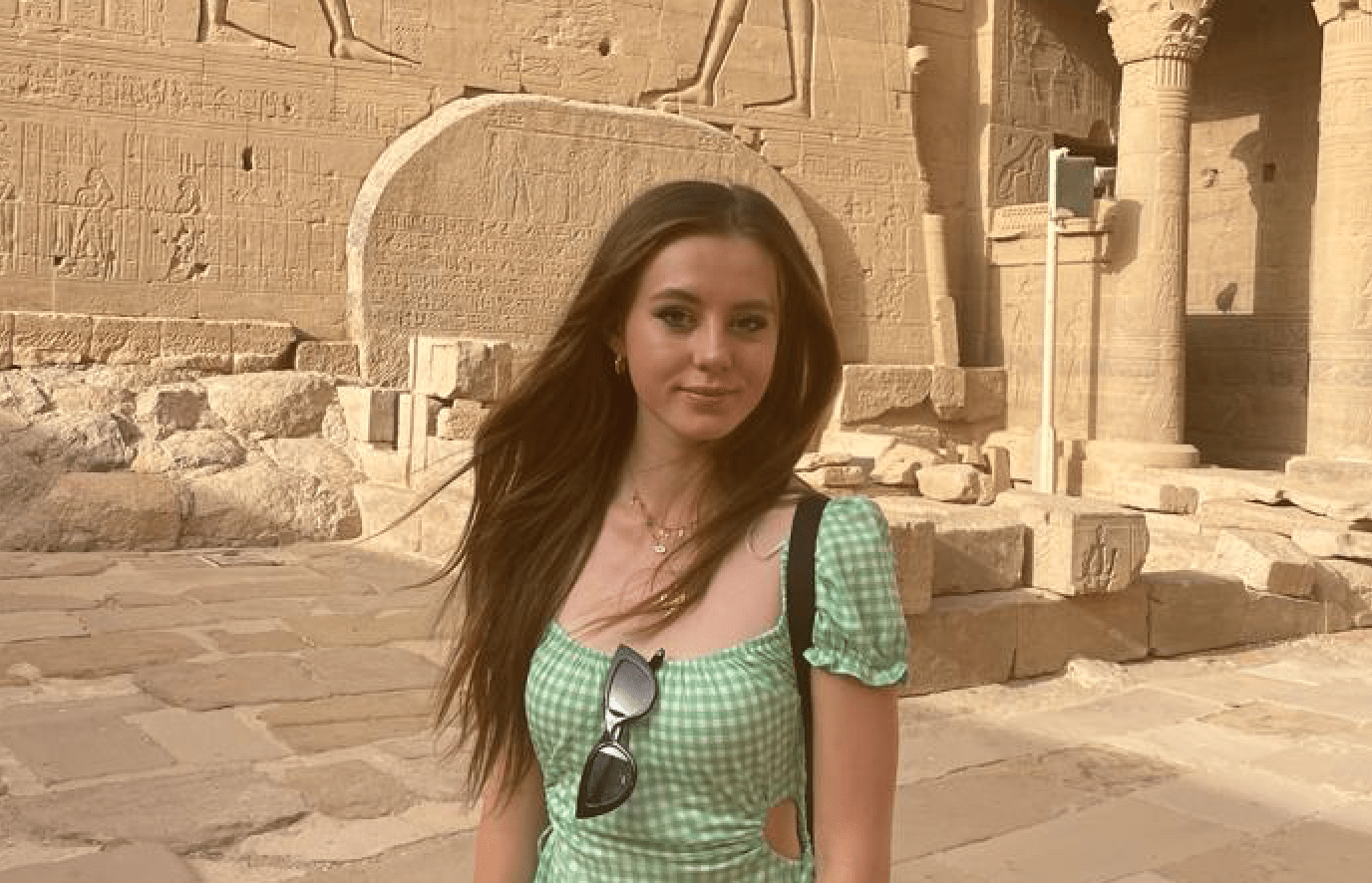
Would you say there was an exact moment in recent memory where you feel like you’ve grown into this identity? Or a certain sociopolitical switch that went off in your head where you were like “yes: I’m proud of this and capitalize on it as an integral part of my identity”?
There have been various moments throughout time, but one thing that really stands out, I would say, is the use of language. I think this was quite recent, in my junior year of high school; somebody was imitating the way Arabic sounded and they were doing it in a very disrespectful way. I think they’d seen a video of Arabic speakers, and the way they were imitating [the language] was very gruttal. It didn’t sound like Arabic.
And of course they were throwing in some common phrases that people knew. If I was younger, I would’ve been scared to confront them. However I approached this person now, and spoke to them in Arabic and was like: “Does this sound anything like what you were saying?” When they said no, I was like, well that’s Arabic. We don’t talk like that.
As someone who grew up between two cultures, I really connect with my identity as a speaker of Arabic. Speaking Arabic was one of the most crucial aspects to me finding my identity, and so that when my own language was trampled on, I felt very comfortable now as an adult to sort of reeducate that person and stand up for what I know to be a very beautiful language.
Speaking of language, you mentioned reading for Darwish. Is there any Egyptian literary figurehead, or book, that you found an intimate connection with? One that perhaps brought you back to Egypt despite not having been born and raised here?
In terms of literature in my Arabic class, we never really focused on Egyptian literary figures in detail. I do remember reading some Taha Hussien, however we mainly focused on Darwish – but I kind of applied a lot of what he said in his poems about Palestine about living outside one’s homeland, longing for one’s homeland, and reapplied it to Egypt, if that makes any sense.
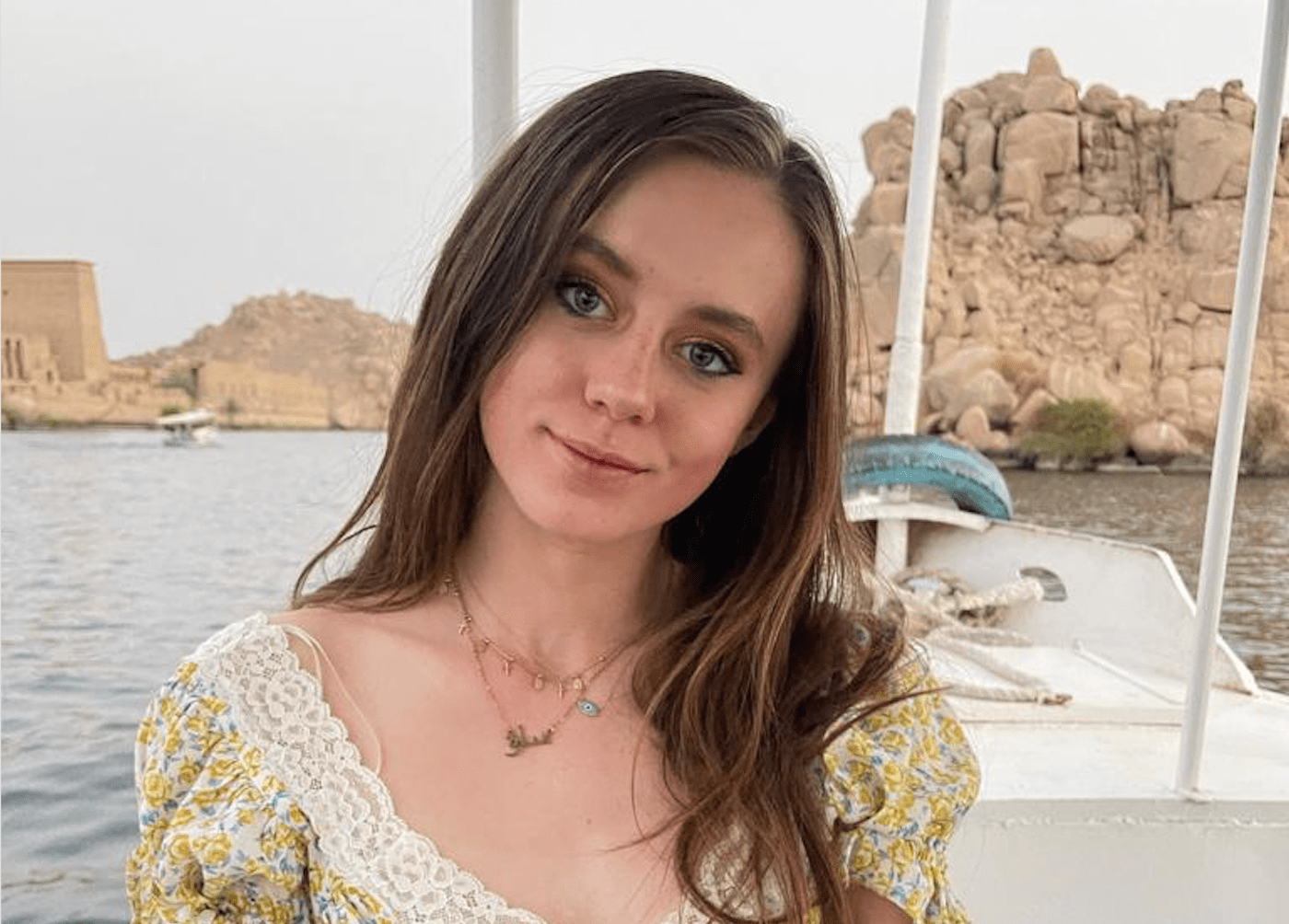
We definitely gravitate towards the literature that best reflects our personal, private struggles. Growing up abroad is certainly no easy task; how old were you when you began reconnecting with Egypt?
I was actually quite shy to speak Arabic growing up. After the revolution I really became even more tied to my Egyptian identity, just because that was a very tumultuous time and I wanted to be able to better communicate. I saw all these articles that were primarily in Arabic, and I wasn’t understanding it. I was quite young in 2011, I was like nine. I wanted to be able to read actual news about everything [happening].
I wanted to be able to express my feelings in Arabic. I [started] watching a lot of news, which was very difficult for me to understand. So when I was 17, which was a couple years later, I found an online Arabic course through Johns Hopkins University. I thought I’d take it to see what happens.
I ended up falling in love with the ability to write cursive and actually write my name the way it was. I showed my friends how to write their names. Writing Arabic gave me a really great way to introduce my identity, because I could just go up to anybody and be like, “well, have you ever had your name written in Arabic?”
That sparked a conversation about my background.
From seventh grade onward I took classes, some in ameya to improve my colloquial Arabic; even though I was speaking Arabic all the time at home – it was the first language I learned as a kid – there’s still a lot of vocabulary that you just don’t use that I thought was important, like medical vocabulary or transportation vocabulary that was more related to the Middle East.
So I kind of took those two classes together in order to get really good at Arabic and now it’s really cute – because my little cousins who, when they were younger, did not want anything to do with Arabic, now want me to teach them. Just seeing me reconnect with the family in Egypt has made them want to take the same courses I have.
It’s an incredible bonding opportunity. My mom did a really good job of recreating Egypt in our own home. Egypt has always been super important to her and it was really, truly her first love.
At the end of the day, like, even if we’re living in America, we’re still, you know, Egyptian at heart. Visiting Egypt was amazing. It was amazing for me to be around other Egyptians and see Arabic written on like storefronts and be able to speak it with everyone and see all our monuments and our amazing history. It was honestly one of the most amazing and beautiful experiences I’ve personally ever had.
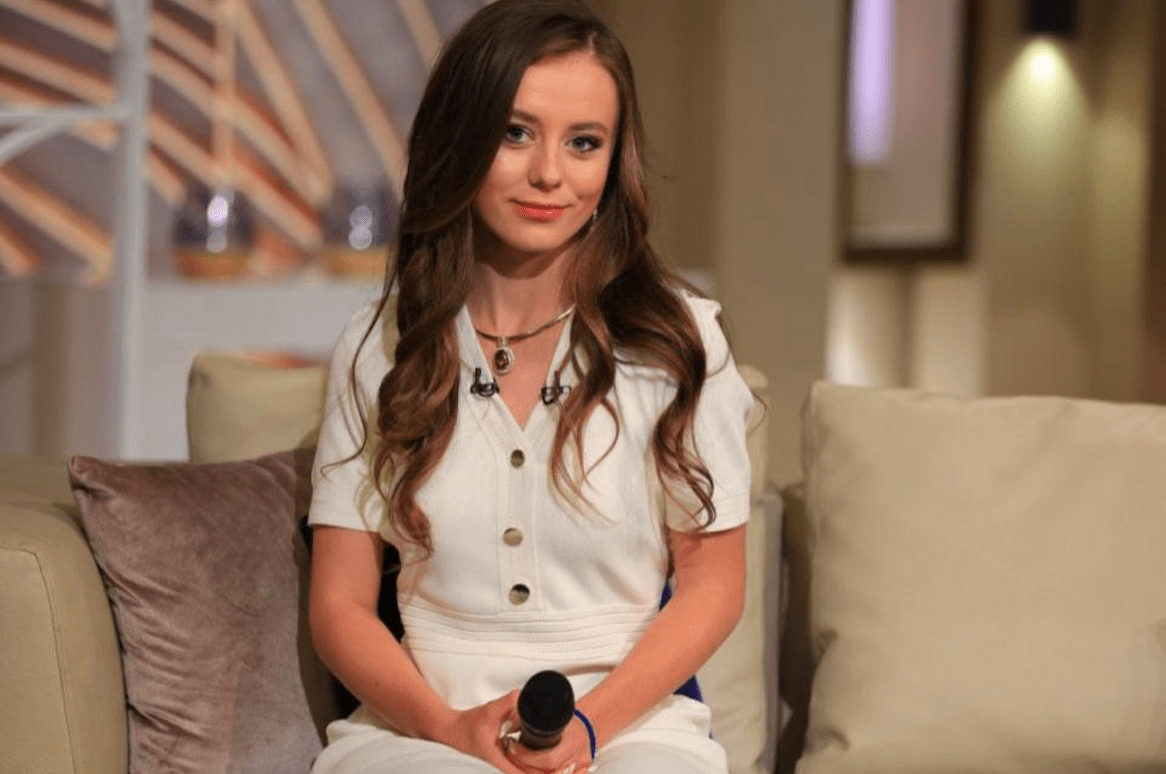
You and your mother have been very active in the charity scene both in the United States and in Egypt – could you tell us a little more about that?
When I went back to Egypt this summer, it was my first time visiting after 15 years. They gave me a whole tour of the hospital (57357 Children’s Cancer Hospital) and I actually got to talk to some of the kids that were sick and the families that were receiving aid.
I was just really struck by the fact that they were so grateful, like the opportunity to give their kids this sort of care. I was really struck with the like state of the art facility, it rivaled some of the things I’ve seen here in America, especially for a hospital that gives free treatment for cancer.
I was like, absolutely amazed with it. It was really rewarding to see all the money that I had helped raise and like all the work that my Mom had helped put into it, really pay off.
And I also visited a hospital in Aswan and that was really amazing as well. I was just very much proud of the facilities there and it made me even prouder to be an Egyptian. But also, I started working on some things that were not in the direction of medical care.
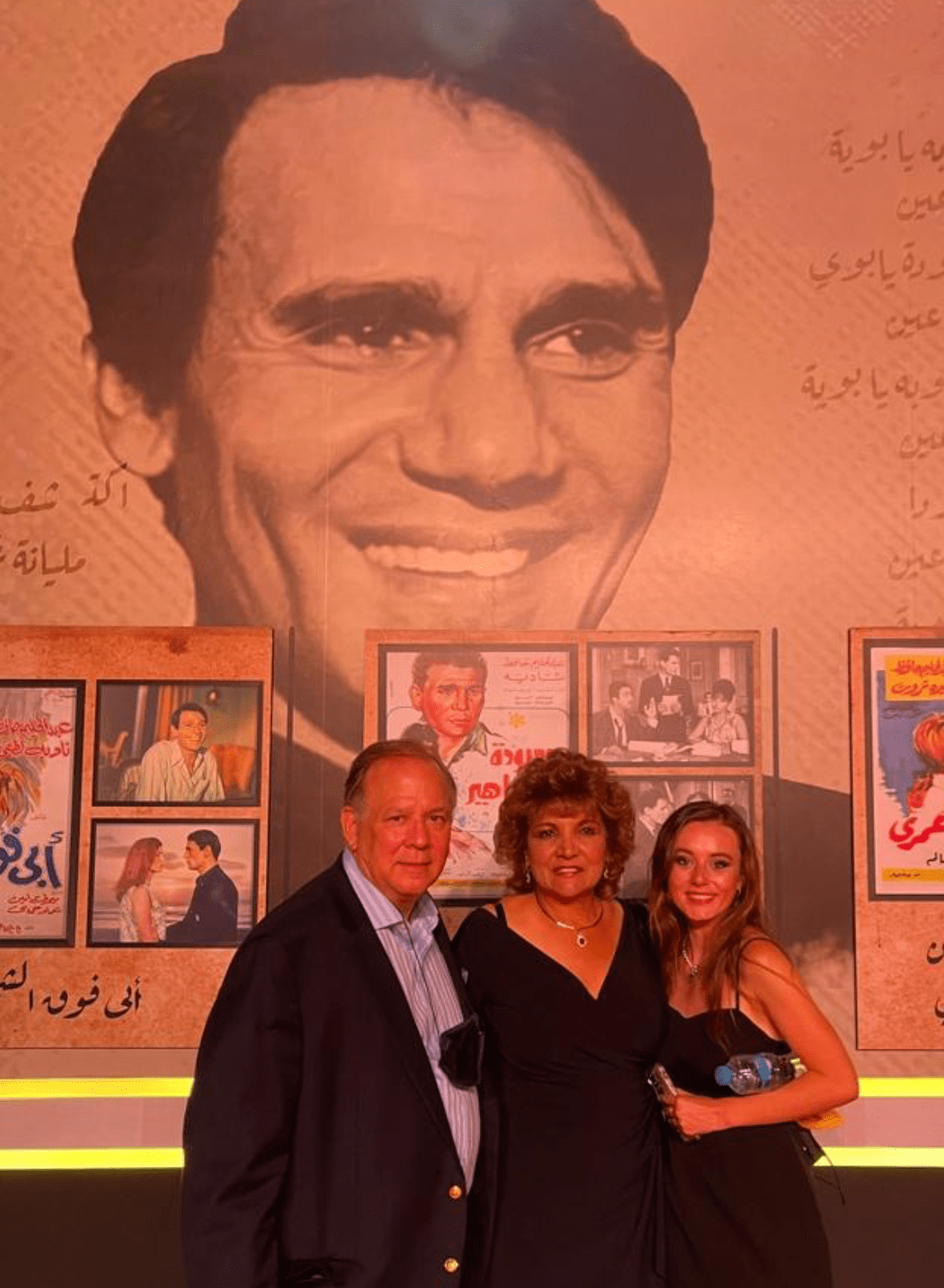
We heard from your mother, Laila Pence, in a recent interview that you ran a non-medical charity fundraiser for your birthday.
Oh yeah, in lieu of gifts I asked everyone to donate to Haya Karima. I feel very fortunate that my parents were able to provide a lot for me, and I never had to worry about a lot of things financially. I wanted people to donate because it means more than gifts; I have everything I need. I wanted to help Egyptian people who were possibly struggling with poverty.
I wanted to impact their lives positively, and I became very passionate about it as well. [When in Egypt], I sat in on a lot of meetings, was involved with conversations with ministers and I truly saw that the vision they had for Haya Karima was something amazing.
A lot of women and children are struggling in Upper Egypt, and [getting people to be] passionate about the organization was a personal goal. A lot of my friends, even some who weren’t Egyptian, became really involved in wanting to donate and help raise money. People from my dad’s side of the family, who are American, also donated. Their kids emptied out piggy banks to give to Haya Karima.
It was really inspirational to see. We raised a lot of money and hopefully it’ll help a lot of people.
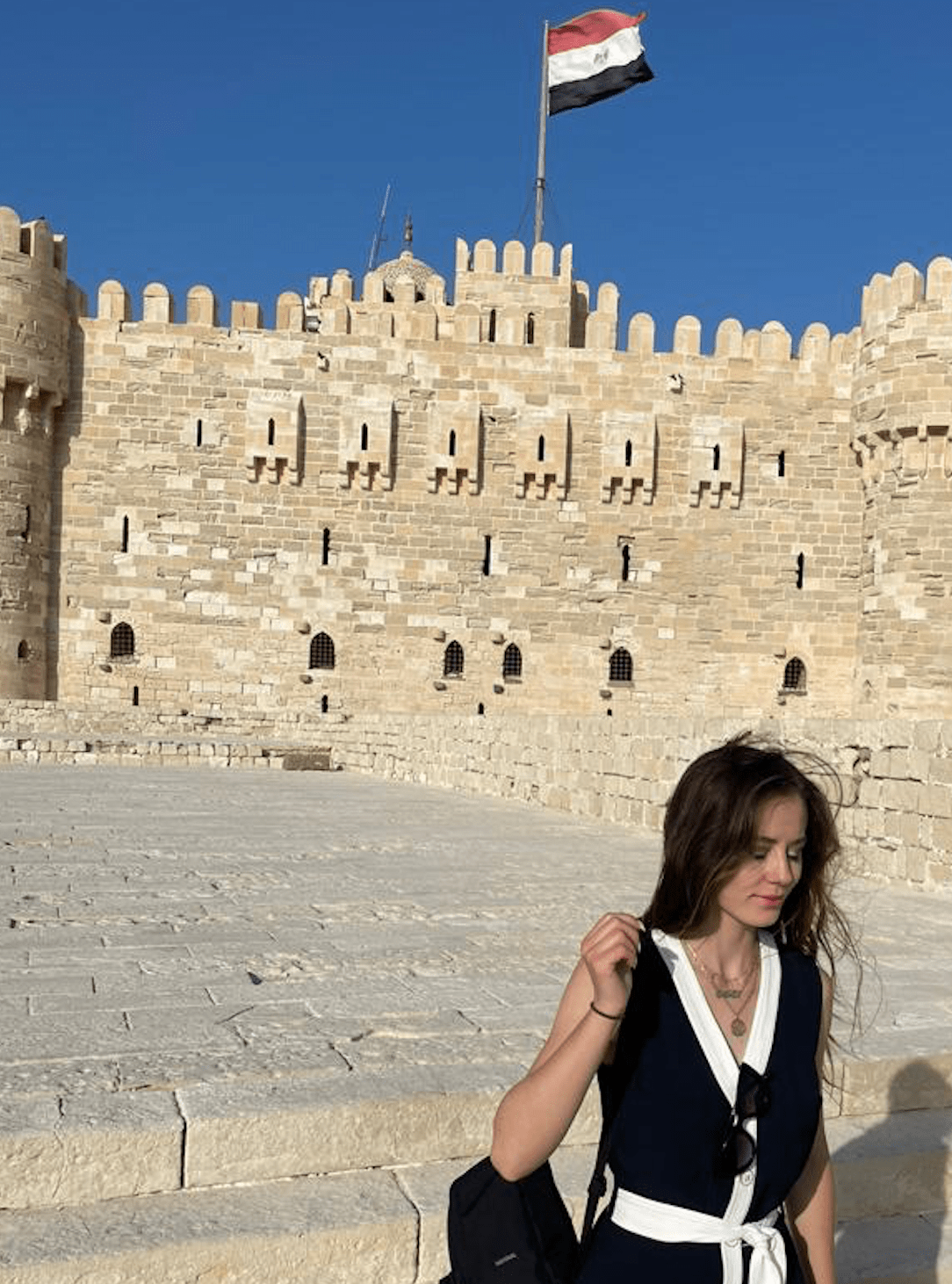
On a lighter note, do you have a favorite place in Egypt after your visit?
We visited a lot of different mosques and churches, which were beautiful, and all the historical landmarks as well. We saw the pyramids, which was really amazing. But I think, in terms of a more specific place, probably when we went on a Nile cruise and saw the Karnak temple.
Everything about it was remarkable. I just remember being there with my cousins and like us learning about it together and seeing everything together. And it’s really remarkable to see the history of Egypt, which is something we all like to learn about in school.
Like in America, they teach ancient history and they spend like weeks in Egypt,I was able to show the professor, I was like, “oh, my family is from Egypt and we went here and saw all of this.”
If you could send a message to other Egyptians abroad, what would it be?
Don’t lose your identity as an Egyptian – it’s something very beautiful to grow up at the crossroads of different cultures. There’s a lot of pressure to assimilate if you live or grew up abroad, but I think at the end of the day, our identity is crucial to who we are.
I also want to say: stay as generous and funny as Egyptians are. I think Egypt has a special soul that no other country has, especially its people. They have a special feel to them, and the cross cultura;-connect is [worth keeping]. A lot of my friends and family want an identity apart from Egypt, and I want to encourage them to embrace traditions, and hold onto their identity.
Thank you so much for your time. Is there anything you would like to share?
I just want it to say thank you because my biggest goal in life is to build these connections between people living abroad outside Egypt and youth within Egypt. Thank you for giving me the opportunity to share all of this stuff, it’s very meaningful to me.




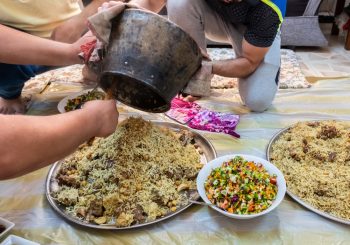
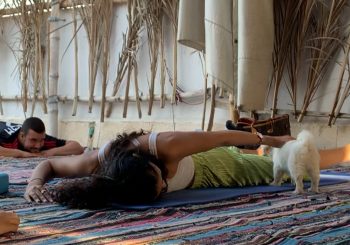
Comments (0)